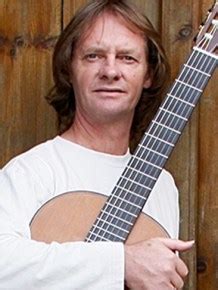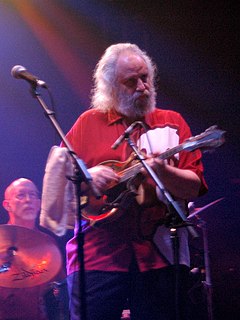A Quote by Terry Riley
Well I guess my music came to prominence around one piece called 'In C' which I wrote in 1964 at that time it was called 'The Global Villages for Symphonic Pieces', because it was a piece built out of 53 simple patterns and the structure was new to music at that time.
Related Quotes
I came from the time of so-called New Criticism - the poem in itself, the writing in itself - but around that time I had come across a critic called Kenneth Burke, who wrote a book called A Rhetoric of Motives, and it seemed to talk about another way, and gradually I realized that other way was that the reader made a difference.
I think it's okay that there's digital music out there, because that does mean more people have access. I mean, you're a student, and you're studying music, and you want to find a CD of a whole work, but there's one piece that intrigues you. It's easy to get that piece for a dollar for the most part. And it's so easy for people to carry around music digitally.
The time I like listening to music most on headphones is, I have a game I play with my brother, he's a musician as well.And he sends me MIDI files of keyboard pieces. So, these are pieces where I just get a MIDI file; I don't know what instrument he was playing them on; I know nothing about his section of the sound of the piece, and then when I'm sitting on trains I do a lot of train travel I turn them into pieces of music. And I love to do that; it's my favorite hobby.
I came to what I think of as the critical problem: the aging process of a piece of music. I noticed in the '70s that pieces I wrote would sound great the first time I listened to them and then on repeated hearings they sounded older and older until what seemed exciting and vibrant on first listening became stale.
Pinkville was called Pinkville because in the military maps, it was shaded a bright kind of shimmering pink, which signified what was called on the maps a 'built up' area, which was extremely misleading - 'built up' only meant there were little villages and it wasn't just desolate paddy land or unpopulated.







































